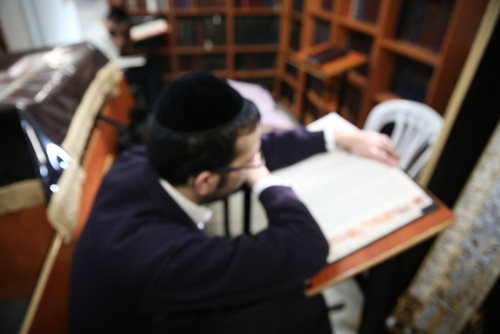Ask the Rabbi with Rabbi Chaim Mintz
I often perform mitzvot (Torah commandments) without much thought or meaning, like I’m just going through the motions. Do such mitzvot still count? Are my thoughts important, or is it enough just to get the mitzvah done?
Rabbi Chaim Mintz responds:
The Basic Intent of Performing a Mitzvah
At its most basic level, when performing a mitzvah a person should have in mind that he is doing this because it is the will of Hashem (God), our Creator and Master, and he wants to obey Hashem’s will. The Gemara (Rosh Hashanah 28b) discusses whether a mitzvah done mechanically or without having in mind that he is fulfilling a mitzvah is enough to fulfill one’s obligation. However, even if it technically does, the Navi (Yeshayahu 29:13) criticizes this, decrying it as “mitzvat anashim melumadah—a commandment performed by mindless habit.”
This is just the basic intent, but there are additional thoughts and intentions we can bring to a mitzvah that can enhance it significantly.
Speech as a Bridge Between Action and Thought
Human activity is divided into three categories: actions, speech, and thought. Physical actions are the most tangible, and rooted in this world. Thoughts are the most abstract and spiritual. Speech bridges the two; the movement of the mouth is physical, while the sound it produces is intangible.
In Kabbalistic teachings, we are taught that a person’s thoughts have the greatest effect on the spiritual worlds, which in turn have a great effect on our world and our relationship with Hashem. But holy thoughts alone are not enough—they must be grounded in action. Without the tangible action of the mitzvah, the thoughts have no foundation and vanish without leaving any impression. Holy thoughts are like a priceless vase or painting, which need a proper stand to display their beauty. Without it, they sit on the floor, and eventually fall and break, losing all their value. Similarly, holy thoughts must be firmly based on the action of a mitzvah to have any effect.
With the foundation of the physical action of the mitzvah in place, we can now build upon it. First, we add a layer of speech by reciting a brachah (blessing) or some other form of expressing that we are performing this mitzvah because it is the will of Hashem. Then we elevate the mitzvah even further with our thoughts.
Elevating a Mitzvah Through Awe and Love of Hashem
One powerful element is the feeling of fear and awe of Hashem. Every action we perform is seen by Hashem, and every mitzvah we perform is directly in His presence. When we are mindful of before Whom we are performing the mitzvah and stand before Him with awe as we do it, the mitzvah is elevated to greater heights.
Another level of thought we can bring to a mitzvah is love of Hashem. When we reflect on how much He loves us and values our mitzvot, and how deeply we love Him, and that we want to do the mitzvah not only out of duty but also out of love, the mitzvah is elevated to an entirely new level.
The Unique Meaning of Each Mitzvah
Additionally, each mitzvah carries its own unique meaning, and thinking about it enhances the mitzvah even further. For example, when eating matzah, thinking about how Hashem, out of his great love for us, took us out of Mitzrayim (Egypt) swiftly, elevates the mitzvah even higher.
Layers of Intention: Building Spiritual Impact
So although you can fulfill your obligation with basic intent, every layer of thought and intention you add deepens the impact and enhances the effect it will have.
In short: The basic fulfillment of a mitzvah is performing the act with the intent to fulfill Hashem’s will. Adding extra thoughts and feelings, while not required, elevates the mitzvah to greater spiritual heights and enhances its effect.
Have another question to ask a rabbi? You can ask Rabbi Mintz your own question at asktherabbi@oorah.org, or head to oorah.org/asktherabbi/ to watch the latest Q&As or join Ask the Rabbi Live, Tuesdays at 9PM ET.


